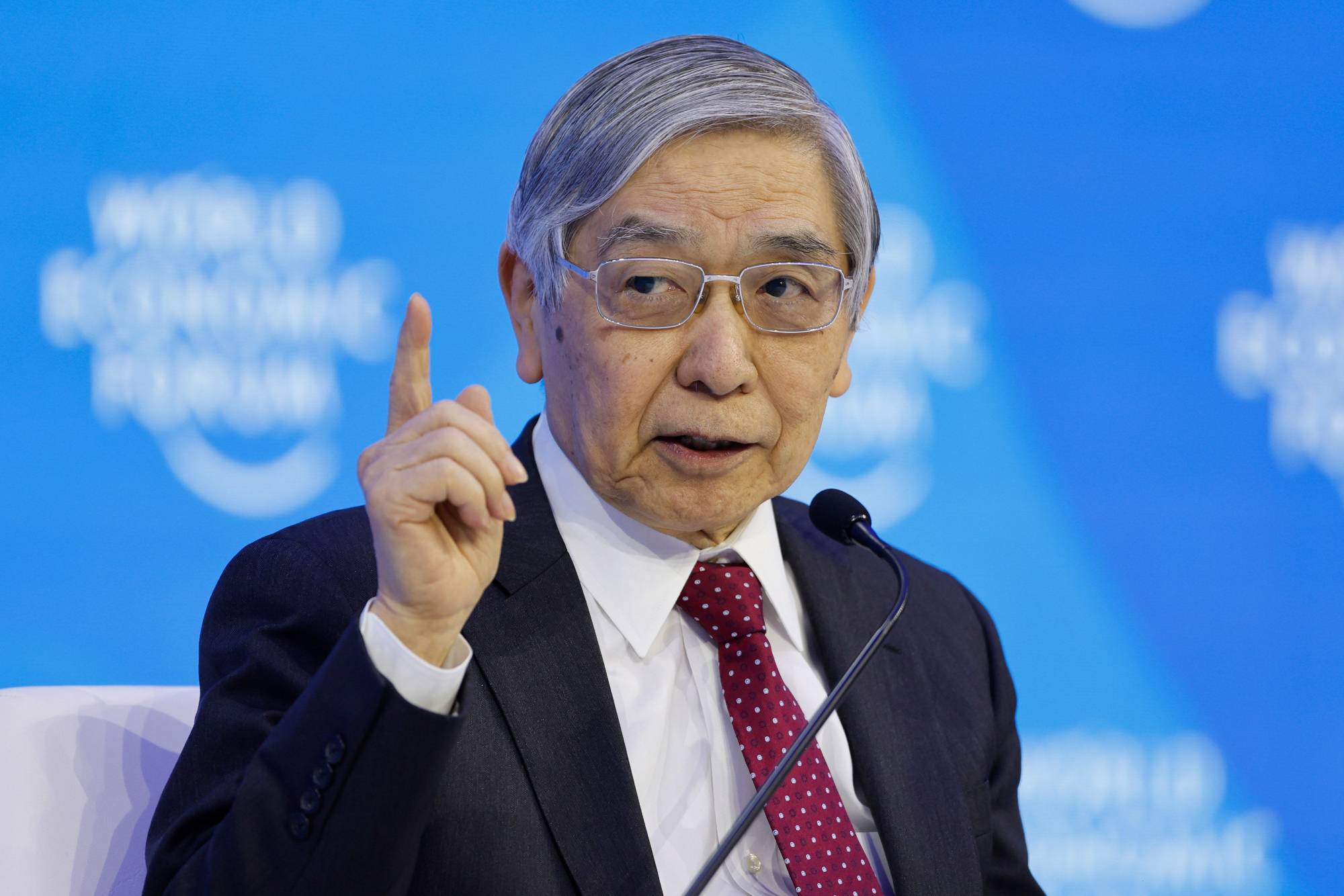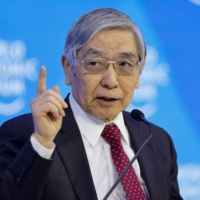Bank of Japan Gov. Haruhiko Kuroda signaled the hottest inflation since 1981 has no impact on his determination to continue with monetary easing. The yen weakened.
"Our hope is that wages start to rise and that could make the 2% inflation target to be met in a stable and sustainable manner,” Kuroda told a panel discussion Friday in Davos — his first public comments since data on prices were released earlier in the day. "But we have to wait for some time.”
Kuroda’s remarks reinforce this week’s central-bank pushback against the most intense market speculation for policy adjustments under his decadelong term. Even so, the pressure is likely to remain as investors bet on the likelihood of a new direction after he steps down on April 8.
Kuroda said current inflation is led mainly by import-price increases, and that it’s likely to start cooling from next month. He spoke hours after a government report showed consumer prices excluding fresh food rose 4% — double the BOJ’s 2% inflation target.
The yen fell as much as 1.4%, past ¥130 against the dollar, as investors continued to unwind bets for an immediate shift in BOJ policy. That took the currency’s losses this week to close to 2% — by far the most among Group of 10 peers.
"We believe the BOJ will need to strike a better balance between its desire to maintain easing conditions and the sustainability of yield-curve control before long,” Naohiko Baba, chief Japan economist at Goldman Sachs, said in a report to clients.
The latest bout of depreciation follows a spectacular rally that saw the currency recover from the weakest level in over three decades, reached in October. Those gains were fueled by broad dollar losses and speculation the BOJ would soon abandon its yield-curve control policy.




